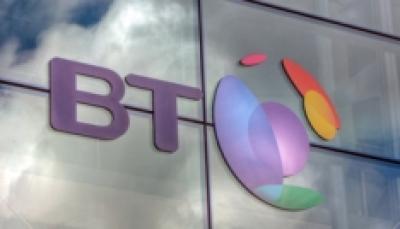Ofcom Tells BT To Cut Rural Broadband Prices

BT has been told to cut charges for rival ISPs so users in the sticks get cheaper access
Rural areas of Britain could be set for cheaper broadband services, after the telecoms regulator Ofcom proposed significant reductions in the prices that BT Wholesale can charge Internet service providers for access to its network.
The proposed price reductions are between 10.75 percent and 14.75 percent below inflation, and Ofcom claims this could increase competition between retail Internet service providers (ISPs). The changes could also enable ISPs to allocate more bandwidth per customer, which would result in faster broadband services, said Ofcom
 “This could benefit nearly 12 percent of UK households or around 3 million homes and businesses,” said Ofcom in a statement. “These are mostly in rural areas including parts of Scotland, Wales and Northern Ireland as well as the South West of England, Norfolk, Yorkshire, Cumbria, Northumberland and other areas.”
“This could benefit nearly 12 percent of UK households or around 3 million homes and businesses,” said Ofcom in a statement. “These are mostly in rural areas including parts of Scotland, Wales and Northern Ireland as well as the South West of England, Norfolk, Yorkshire, Cumbria, Northumberland and other areas.”
Ofcom says it will exempt ADSL 2+ technology from charge controls, in order to encourage BT Wholesale to invest in the new technology. ADSL 2+ is capable of supporting faster broadband speeds than ADSL, with maximum possible speed of 24 Mbps over the copper network.
Balancing control and investment
BT said it understood Ofcom’s desire to move to more formal wholesale broadband pricing controls in rural parts of the country, but said the plans must strike the right balance between control and incentives to invest in rural areas.
BT has already stepped up its efforts to provide wholesale broadband services to rural communities. Only last week, the company announced the draft pricing and design proposals for its duct and pole sharing products, which will allow other operators to deliver ‘last mile’ broadband services to homes and businesses in the UK.
Communications providers will be able to rent space in BT’s underground ducts from £0.95 per metre per year, and the company is also proposing an indicative pole sharing price of £21.00 per pole attachment.
According to Ofcom, 78 percent of UK households are now served by effective market competition – up from 69 percent in May 2008 – following the continued success of local loop unbundling (LLU). However, this competition is mainly in urban or densely populated areas.
In December, the regulator announced it was lifting wholesale regulation in areas of the country where broadband competition is working well for consumers.